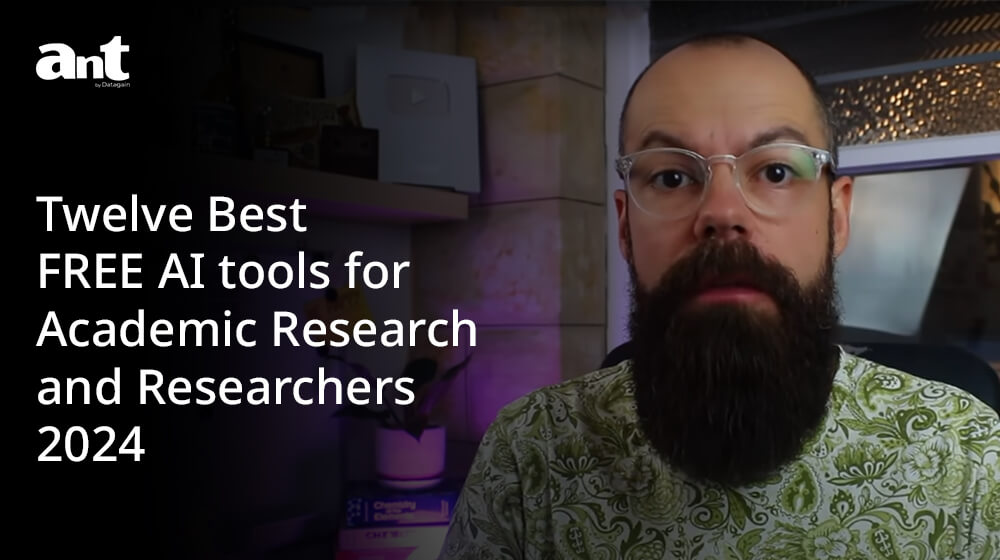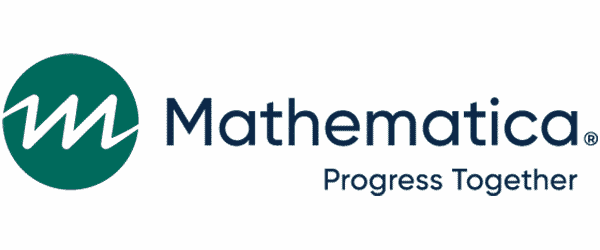
Home » Transcript Library » 2024 Twelve Best FREE AI tools for Academic Research and Researchers
2024 Twelve Best FREE AI tools for Academic Research and Researchers
We’re at that stage with AI tools where they want your money, they are mature enough to suck in those subscriptions they want to get as rich as possible, but the good thing is is there are free tools that are available that are super powerful and this list contains those tools as well as ones that have really generous free plans. The first one you should know about is Heuristica or Heuristica, and the one thing I love about this is that it’s AI driven and it just gives you the ability to mind map a whole kind of research field. Now what we can do? I’ve put in here Organic Photovoltaics and you can see I’ve got what, the cons and pros and I’ve also got examples down here. The way this works is that when you first log in, you put in what you want to put in this middle bit and then you can ask for elaborate. You’ve got all of these down the side that you can put in. So, I can put in “How” if I click here, and I click “How”, then it adds here organic photovoltaics work by converting sunlight into electricity and I can add it to my exploration and you can see here that I can add as many mind maps as possible and I can click here and I want to know the concepts related to a specific input. So, here I want solar cells, I was renewable energy, I want semiconductor [beep], I want it all. Oops, don’t lie, beep that out. And then we’ve got all of these concepts that come off it and it’s just so so good. And then I can say, okay, well actually I want to know about energy conversion. So, what is energy conversion? And then I got AI generating this response and I can add it in here and this is a mind map that can just get massive, it’s completely free a really great way to start your literature review. If you don’t know where you want to start, it’s really powerful and I think this is something that everyone should start with if they’re sort of like first into a research field, check it out.
The second one you should know about is open read. Open read has pricing plans for all your needs, but this is the one we’re interested in. We get five paper espressos, we get five paper Q&A, we get five chat with Oat, we get AI summary times five a month. So this is actually quite generous considering how powerful this is. If I go in and I look for all of my files, so I can upload here a PDF document and all I have to do here is say, okay well, what PDF document do I want, what PDF document do I want? I’m going to drag and drop one of my papers right here. You can see that it’s uploaded and it’s got all of the things I want to know about. So, it’s got basic information, it’s kind of given me not only just like a little summary of the thing, but I’ve also got the DOI and other basic information. If I want to know more about this, I can ask more questions about it. This is like little chat bot up here, “Hi I’m Oat” and you can ask Oat anything. And if I want to know more about this, where do I go? I can go up here and ask for a paper espresso. And I love this paper espresso, because what it gives you is all of the bite-sized chunks for reading about this paper. Please allow 10 to 20 seconds. Brilliant, it took less than that, I love it. We’ve got the achievements and significant, we’ve got the background and context, we’ve got discussions interpretation, we get five of these a month. But if you just sort of like use this on the papers that are big, that are chunky or when you’re just tired and you don’t want to read it, that’s also completely okay. Up here we can also ask paper Q&A, which is brilliant. We get five questions that we can ask about this paper. Who is the best author on this paper? Is it Andy Stapleton. Oh, it doesn’t say I’m the best, but I am the best.
The third one you should know about is Explain Paper. I absolutely love this, it’s completely free, I’m amazed that it’s still completely free. But essentially you upload a paper to it which is brilliant and then you just select text that you want explained. So, here if I want this stuff, I just simply select it all, then it pops up here and I can explain this as a middle schooler, as a 5-year-old to a high schooler. Let’s say middle schooler, I click explain, and ultimately here we’ve got a little kind of undergrad explanation of all of the things. We can ask as many follow-up questions as we want. It’s even got related resources that you may want to know about. It’s really fantastic, completely free, love it, explainpaper.com.
Another tool that you should know about to help you read papers is Paper Brain. Paper Brain is really fantastic. All we have to do is upload a paper, this is one of mine, accurate thickness measurement of graphene. This is run by Dr. Cameron Shearer, fantastic scientist, love you Cameron. And here I’ve just asked it, what is this paper about? And it’s just given me a little simple like AI generated response. A great tool for asking questions about specific papers and receiving AI generated answers back. I’m going to ask this one, Who is the best author on this? Please let it be me, please let it be me, please let it be me, damn it. Cameron Shearer is the best author on this paper. Cameron, I’m coming for you.
The fifth tool that you should know about is Einblick, einblick.ai, and it’s chart generation AI. Three simple steps, upload your data set, describe what chart you want, and then generate a chart. So it’s simple, I’ve clicked here, Try random example, because I can’t be asked uploading my own spreadsheet. But here you can see it’s — all you have to do is put in a link to your spreadsheet or you can upload a file, it creates a little sort of like table here of all the information you put in. Then you say, what chart you want to generate, you want — in this case they wanted a scatterplot of N2O versus CH4 emissions, and this is what they’ve ended up with, brilliant. A really great way of just getting those simple first draft charts of your data that you can put in any sort of like supervisor meetings or that sort of stuff, really powerful, really free, check it out. Really free. More free than free.
The sixth tool you should know about is Tavily. Tavily AI or tavily.com. Here we’ve got an overview, but this is what I’m interested in, the research assistant. I’m going to click here and then it’s asking me, what should I research for you. So polite these AI tools. So, I want to know about organic photovoltaic devices. And what this does which is super powerful is, it creates an agent based on your search question and it sends it off to the internet to get information for you. This is all about making sure that AI doesn’t hallucinate, and come up with random bullshit that doesn’t actually exist in the world. So you can see it initiated a custom research agent, then it was looking for online sources, then it found these things, and then it comes up with this at the bottom. It gives you a nice kind of overview of the research you’ve wanted. And I found that if I ask specific questions, it does give me specific answers with AI generated text that was researched properly. It gives links to all of the stuff you want to know about and it was really fun, I’ve tried this one, the best organic photovoltaic devices in the current market which is something like I need to know about if I’m in that research field and you can see that it gave me all of this stuff saying that these guys were the best ones at the moment. Where are they? They are Dracula Technologies. And so if I click here, it will open up where they found this information. You can see it’s super relevant and recent information and this is the sort of stuff I want to know about. If I’m in a particular research field, it searches the online web space, it doesn’t do scholarly stuff as far as I know at the moment, but that’s still super powerful for free. Go check it out.
The seventh one you should know about is Powerdrill. Powerdrill has got an upgrade option, but it’s really powerful in this simple format. Down here we’ve got chat, but this is really easy. What you have to do is upload data sets. If I’ve got my research, all I need to do is go in here and upload data sources, these can be uh text, web pages, or files. So I’m going to put in my own research and here we are, it says “need larger storage size. Your current upload is 2 megabytes larger than data limit.” That’s right, I don’t want to do that. Upload that, there we are, I’m going to upload as much as I can for this data set for free and once it’s uploaded, I can go in and ask questions about all of that data set which is super powerful and something that quite often you have to spend a lot of money to get. To make the most of this small amount of space, you want to put in review papers that contain a lot of information and that will help you sort of like use this to its strongest ability and power. So, once all our data is up, there all we need to do is go to simple chat, then we click New Chat, talk to GPT. Click on this one and say, no, I want to talk to Andy’s research. And then we can ask it anything about the research. Who is the best author on these papers? Don’t let it be Cameron, don’t let it be Cameron, be me, be me, be me. Oh, it hasn’t given me an answer. What a cop-out.
Scispace, Scispace I absolutely love, Do hours worth of reading in minutes, it’s brilliant. You can upload papers, you can do a literature review from Scispace papers or my library, you can extract data from PDFs, you can read with AI copilot, there’s all limits on this, but it’s all quite generous. But if I go to, My Library, the one thing I love about this is, when you upload PDFs, it gives you a too long didn’t read, gives you conclusions, it gives you all of these different things that, you know, would take you hours to extract manually from these papers by just reading them, but it’s a great way to get this massive table of too long didn’t read, all of the conclusions, all of the stuff together, simple, easy, and look, all you need to do here is open Copilot , you can ask questions, it’s so easy. I can’t believe it’s free and, yeah, check it out, Scispace, but strangely their URL is typeset.io.
The next one you should know about is Nextnet. Nextnet is fantastic if you’re in the drug and health space. So, here all I need to do is click on Discover, type in new drugs, for example. I don’t know what I’m doing, this is well outside of my comfort zone. But it’s completely free, it will go away and search for all of the recent literature and stuff on like gene expressions and drugs and all that sort of stuff. But Nextnet is a fantastic tool, if you’re in this research space I just wish that it would, you know, have something similar in a different research space. So here we are, this tells you everything. New drugs, then it’s got National Drug law, anti-tumor effects, isolates, unsafe, you know, clearly if you know what you’re doing and you know the field you can put in something to search much better. Ultimately it gives you this super searchable graph on a research set based on your query, brilliant. Go check it out. getnextnet.co, boom.
The last ones that I want you to know about are all linked together and it’s just the old school General AI chat that I’ve been using for, I was going to say years now, but for like a year since it came out. But these are chat GPT, the OG, the OG of AI as well as Perplexity, as well as Bing. I use these all of the time, if we go to Bing chat, I use these all of the time as my, like, go-to place. They are free, they are super powerful, and you can ask it almost anything. The problem with using these over, like, something that’s specifically for research. Sometimes it can hallucinate, sometimes it can give you too broader of a response, sometimes it’s not like academic enough, but these are all overcomable by chatting with it, asking for it to change its response or for like asking it more detailed knowledge about a certain thing or just telling it’s wrong, you say like, no I actually don’t want that. I want you to do it in these ways. These three tools have changed the world and they have changed research forever, so chat GPT I love, that is my go-to for every day. Perplexity, I go there if I want it to give me references that I can sort of like do further information. And I go to Bing if I really want sort of like more control over the sorts of response it gives me. I can ask for more creative, I can give balance, I can ask for more precise stuff and there are really sort of like a great number of ways you can manipulate the chat before asking the question in Bing, I love it.
So those three tools are where I go all of the time, they’re completely free, I love them, they’ve changed the world, they’ve changed research forever. Let me know in the comments which one you prefer, Chat GPT, Perplexity or Bing. So, there we have it there are the 12 free AI tools that are the best for 2024. Let me know in the comments if there’s any I’ve missed or ones that you prefer, I love to know about them. And also if you love this video, go check out this one, where I’ve put all of the five mind-blowing AI tools that you should be using for research that you probably don’t know about. Go check it out.
Copyright Disclaimer
Under Title 17 U.S.C. Section 107, allowance is made for “fair use” for purposes such as criticism, comment, news reporting, teaching, scholarship, and research. Fair use is permitted by copyright statute that might otherwise be infringing.






